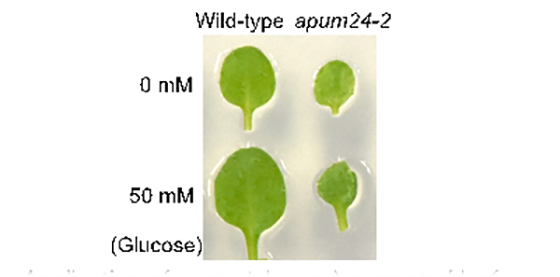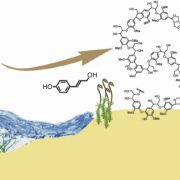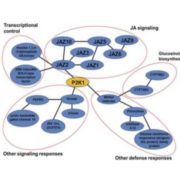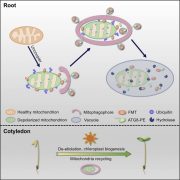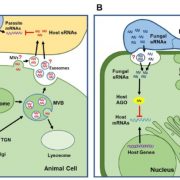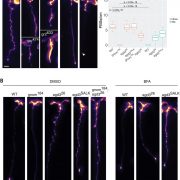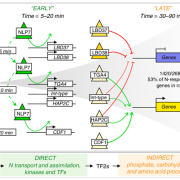Ribosome Production Under Surveillance
Maekawa et al. find a ribosome production monitoring system in Arabidopsis thaliana Plant Cell (2017) https://doi.org/10.1105/tpc.17.00778
By Shugo Maekawa, Tetsuya Ishida, Shuichi Yanagisawa
Background: Protein is produced by ribosomes consisting of a number of proteins and several RNAs (ribosomal RNA, rRNA) as a scaffold. Ribosome synthesis, one of the most energy-consuming processes in the cell, includes very complicated and numerous steps and needs to be precisely monitored. In mammals and yeast, this monitoring system senses defects in ribosome synthesis, including defects in both rRNA production and assembly of the ribosome, as “stress”, and subsequently induces halting of cell growth and/or proliferation. This is referred to as “ribosomal stress”, which is alternatively called “nucleolar stress” because nucleoli of the cells subjected to ribosome stress usually change in terms of their size and/or shape. However, our understanding of ribosomal stress in plants is very limited, because only a very small number of reports mention ribosomal stress in plant cells.
Question: We wanted to know if plants sense the ribosomal stress to halt cell growth and/or cell proliferation and if this stress is associated with the energy status of the cell. We investigated ribosomal stress in Arabidopsis, using a mutant of a rRNA production-related gene APUM24.
Findings: We found that the loss-of-function mutation of APUM24 results in abortion, whereas reduced expression of APUM24 in a mutant, apum24-2, causes defects in rRNA production and reductions in nucleolar size. Interestingly, these features of the apum24-2 mutant are energy status-dependent. We further compared growth of the wild-type and apum24-2 seedlings in the presence and absence of sugar exogenously applied as an energy source. Sugar application remarkably promotes leaf and root growth in the wild-type; however, this sugar-promoted effect is reduced in the apum24-2 mutant. We therefore concluded that reductions in APUM24 expression result in a sugar-dependent pre-rRNA processing defect that causes ribosomal stress and then inhibits sugar-dependent promotion of growth. The results suggest the presence of a monitoring system for ribosome production in plant cells as well as in mammalian cells and yeast.
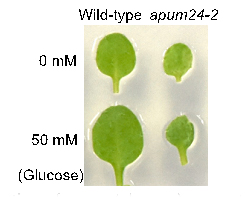
Application of sugar (glucose) promotes leaf growth in normal (wild type) seedlings but not in the APUM24 knockdown mutant.
Next steps: Revealing the molecular mechanism underlying signal transduction of ribosomal stress in plant cells is necessary to discover how the ribosome production is robustly and precisely maintained in plants.
Shugo Maekawa, S., Tetsuya Ishida, and Shuichi Yanagisawa (2017). Reduced expression of APUM24, encoding a novel rRNA processing factor, induces sugar-dependent nucleolar stress and altered sugar responses in Arabidopsis thaliana. Plant Cell. Published December 2017. DOI: https://doi.org/10.1105/tpc.17.00778


